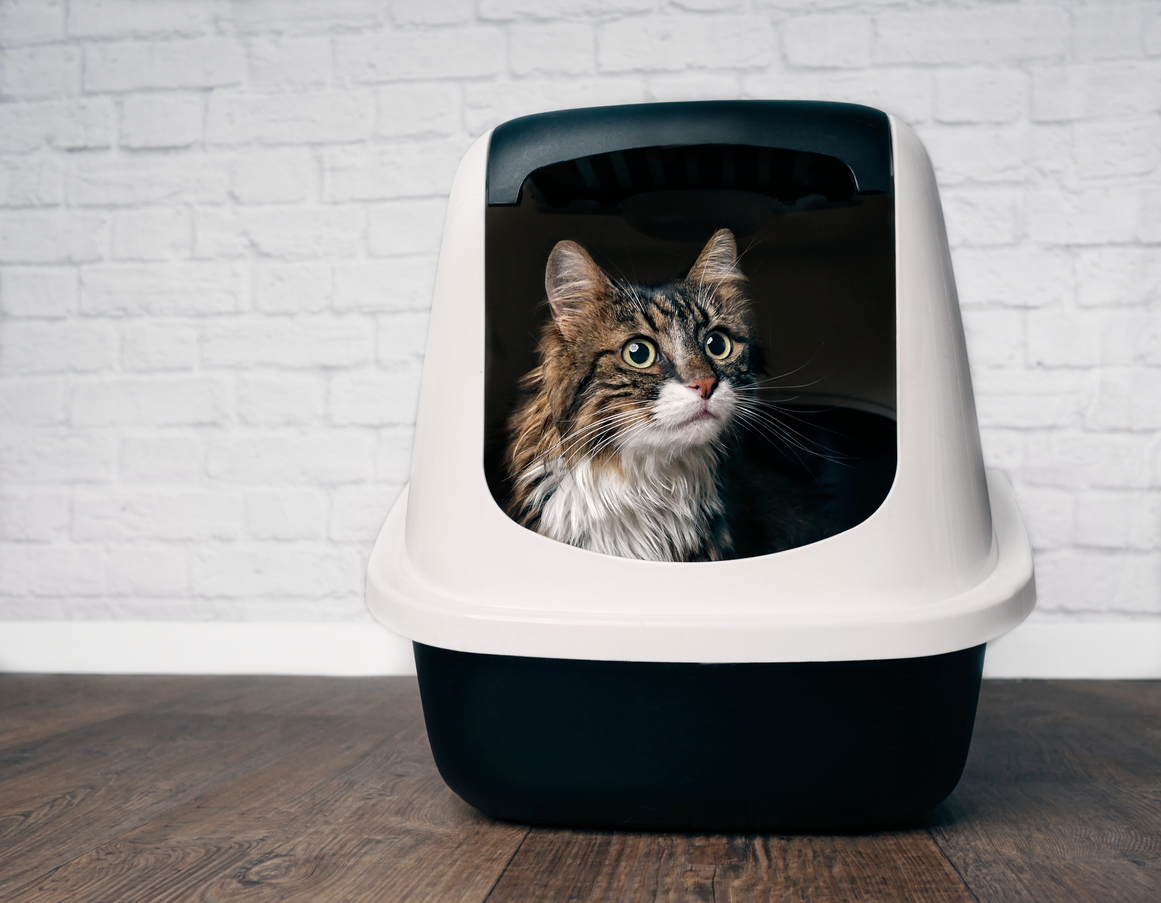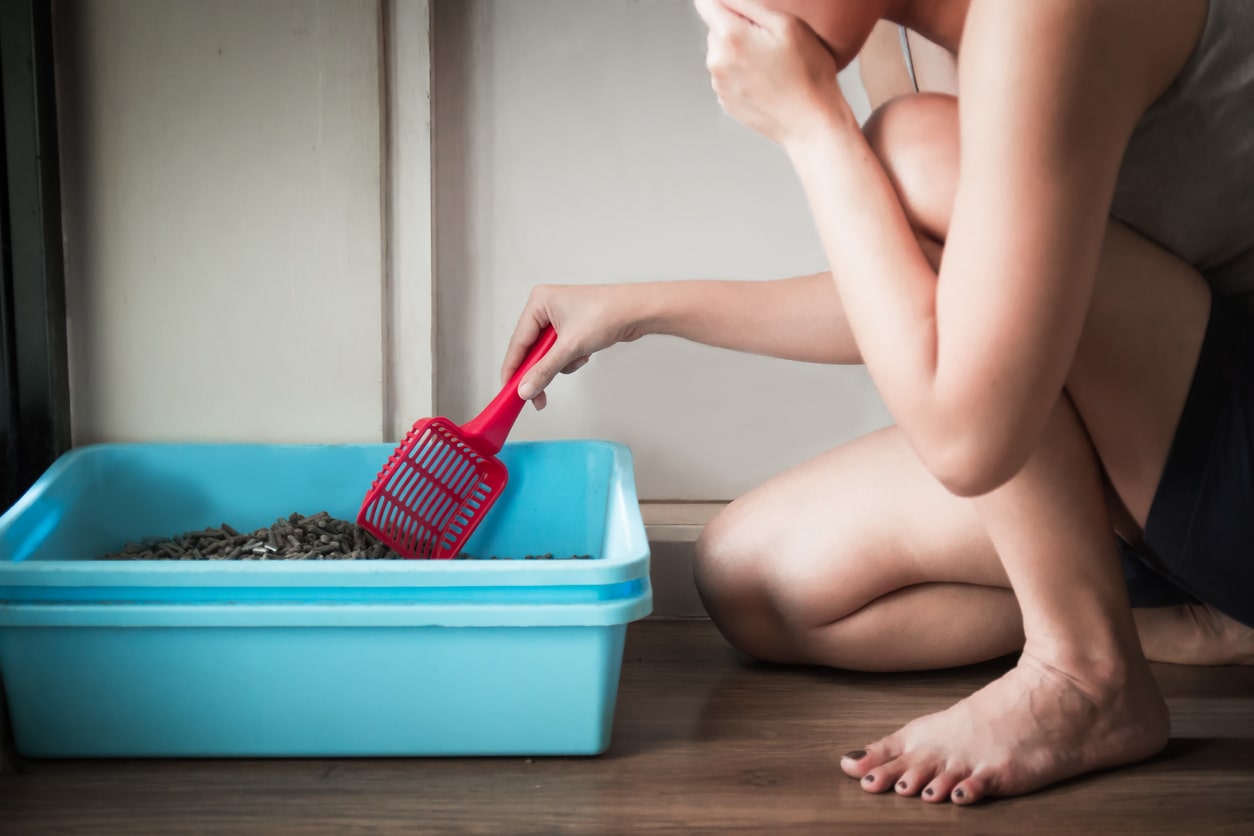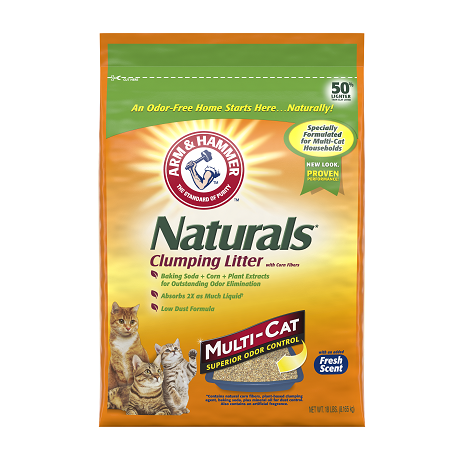Is Strong-Smelling Cat Urine Normal?
Cat pee is never going to smell pleasant to human noses and most people will consider it a “strong smell.” Unneutered male cats have the most pungent urine odor, as they use their pee to mark their territories and warn other males to stay back. Unspayed female cats also have strong-smelling urine, especially when in heat. That musky smell signals to the male cats nearby and leads to kittens about two months later.
Getting your cat spayed or neutered not only helps control the cat population and contributes to a healthier life but also reduces hormones found in their urine and makes the odor less strong.
And like humans, every cat’s pee is unique and can change depending on health, water intake, and the food they eat. Older cats have less efficient kidneys and tend to have stronger-smelling urine as well.
What Causes Cat Pee to Smell So Bad?
Cat urine has less smell when it first exits kitty’s body and more odor as it sits in the litter box. Bacteria begin to break down the urea found in urine, releasing that characteristic ammonia smell. As decomposition continues, other biological elements in cat urine release mercaptans, a sulfur compound that has that noticeable skunky odor.
Your cat’s pee is already highly concentrated due to their efficient kidneys, composed of more waste and less water than many other animals’ urine. But, what really creates the cat pee smell you dislike so much is the urine sitting around in the litter box – or heaven forbid, outside of it. The notorious pungent smell comes from not just cat urine but decomposing cat urine. Now you know.
The good news again? You can clean the litter box more often so the cat pee doesn’t sit around long enough to break down into the smelly gases. You can also choose a litter that traps and seals the urine away in clumps that help prevent the gases from being released.
Changes in Your Cat’s Urine Smell All of a Sudden
We’ve already mentioned that your cat’s typical urine smell can change over the course of their lifetime or vary some based on food and water intake. However, if you notice a change in your cat’s pee smell all of a sudden, there may be reason for concern.
- A strong fishy smell in cat urine can be a sign of a urinary tract infection, which are common in cats.
- A strong fruity or sweet urine smell can signal feline diabetes.
- A stronger ammonia smell can signal even more concentrated urine, which can be due to kidney disease.
If you notice a sudden shift in your cat’s urine odor – especially if your cat has also changed their urinating habits such as going more frequently or peeing outside the box – schedule a visit with your veterinarian to make sure an infection or other medical condition isn’t the culprit.
And while we’re talking cat urine, your cat’s pee should be clear (not cloudy), pale yellow (straw-colored), and liquid (without crystals). Although it can be hard to monitor your cat’s urine color and consistency since kitty tends to demand complete privacy when using the box, if you notice cloudy, dark, or crystallized cat pee, get kitty to the vet.
Strong Ammonia Odor from Cat Litter Box
Believe it or not, litter boxes don’t have to smell awful or be the telltale sign of a cat family. If you have a strong ammonia odor coming from your litter box, it’s time for a change. You may need to do one or more of the following:

- A full litter box change. Dump all the litter out, scrub the box with warm water and a mild soap, and refill with new litter. Even if you’ve been scooping diligently, you should do a complete litter box change monthly to help control odors.
- Get a new litter box. Over time, cat urine and feces as well as daily use by your cat will break down the plastic of a litter box. More odor will absorb into the plastic itself, and even after a wash, the ammonia smell will still be present. Litter boxes don’t last forever, so if you notice a persistent cat pee smell it may be time for a new box, not just new litter.
- Try a new cat litter. Not all cat litters are created equal and some are simply better at controlling odor than others. Three factors that help predict how well a cat litter will keep odors down are absorbency, clumping power, and fragrance. The faster a litter absorbs urine and the harder the resulting clumps, the better the odor control. Added fragrance or natural ingredients that affect pH such as baking soda can also help neutralize and offset the acrid and acidic smell of cat pee.
Prevent Litter Box Cat Pee Odor with ARM & HAMMER™ Cat Litter
A superior cat litter that absorbs cat urine quickly and seals it inside clumps will help reduce the strong smell of cat pee and the ammonia odor as urine decomposes. Try one of these ARM & HAMMER™ cat litters with patented odor-sealing technology and the odor-neutralizing power of baking soda to see what a difference an effective litter can make in your home.
- ARM & HAMMER™ Slide™ Easy Clean-Up Clumping Litter with patented Clump & Seal™ technology to lock in wetness and odor and reduce scrubbing and scraping when cleaning the litter box.
- ARM & HAMMER™ HardBall™ Lightweight Multi-Cat Clumping Litter for lightning-fast wetness absorption, ultra-compact no-crumble clumps, and a fresh Garden Bloom scent, all in a lightweight litter that’s easier to carry and pour.
- ARM & HAMMER™ Forever Fresh Clumping Cat with baking soda to help neutralize odors and a pet-friendly lavender scent for long-lasting, calming freshness. Plus, hard clumps for easier scooping and a low-tracking, 99% dust-free formula.


